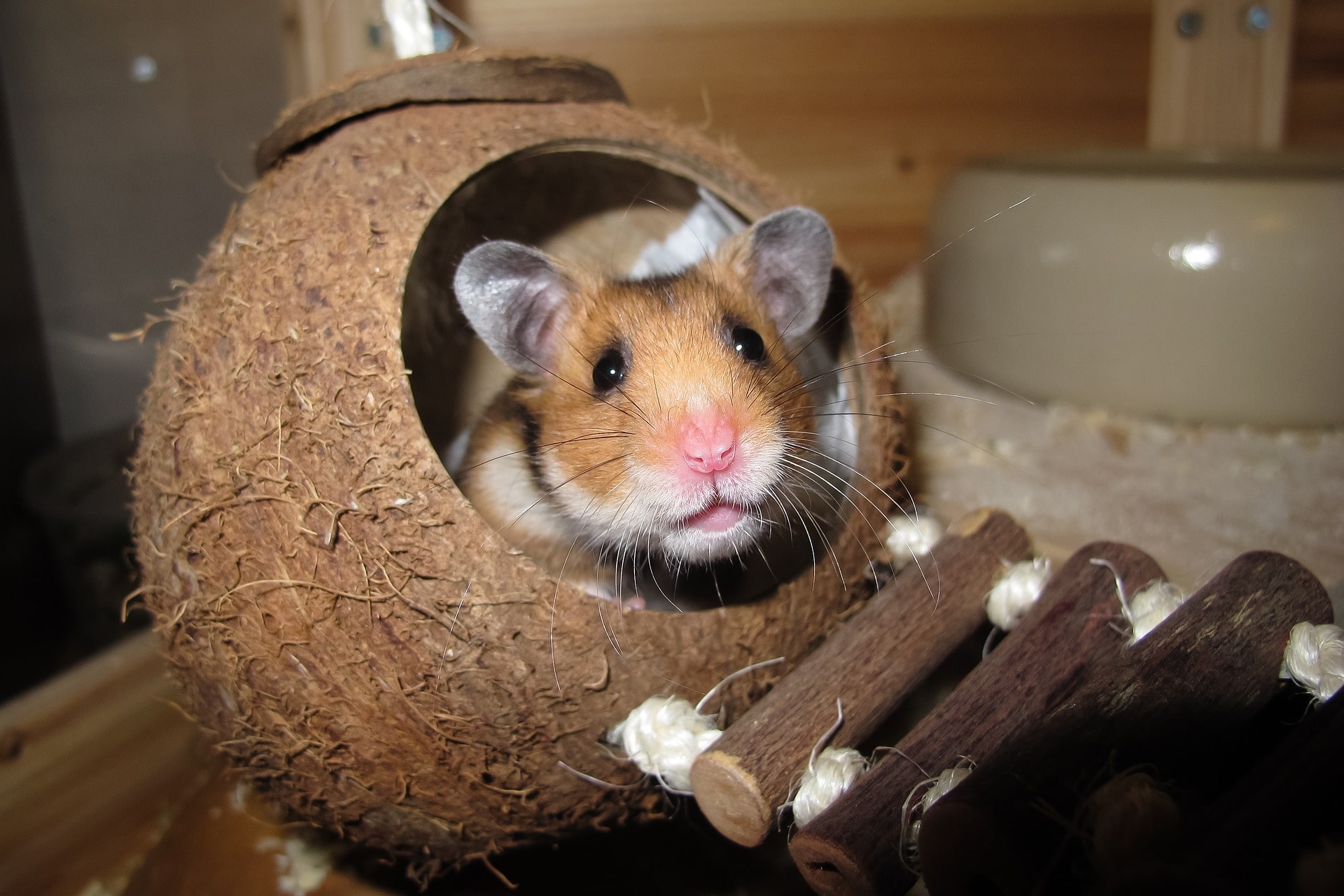There is a lot that goes into caring for a hamster. But in the end, it is well worth it. Who wouldn’t want a fuzzy little friend that loves running on a hamster wheel for hours at a time? If you are considering getting yourself a new little friend, continue reading to learn about the tips and tricks to best care for your pet hamster.
Choose the Right Hamster

Choose the right type of hamster for your home and lifestyle. There are several different types of hamsters available as pets, including Syrian, Dwarf, and Chinese hamsters. Each type has its own unique characteristics and care requirements, so be sure to do your research before making a decision.
Hamster Housing
The first step is to provide your hamster with a cage that is large enough for them to move around in and that is appropriately furnished with items such as a wheel, tubes, and hiding spots. To best care for your pet hamster, give them plenty of space to move and explore, so it’s important to choose a cage that meets their needs.
Moreover, don’t forget to keep your hamster’s cage clean by spot-cleaning it daily and thoroughly cleaning it once a week. Hamsters are sensitive to odors and can develop respiratory problems if their cage is not kept clean, so it’s important to maintain good hygiene.
Keep your hamster’s cage clean by regularly removing soiled bedding and providing fresh bedding as needed. Hamsters are sensitive to ammonia and other odors, so it’s important to keep their cage clean to prevent respiratory problems.

The Perfect Environment
From time to time, we all need a breath of fresh air. It is important equally important for your hamster. So, make sure your hamster’s cage is well-ventilated to prevent respiratory problems and overheating. Hamsters are sensitive to heat and can quickly become overheated in a poorly ventilated cage.
You may love sunshine, but your buddy can become overheated if placed in direct sunlight. Be sure your hamster’s cage is away from direct sunlight. In short, keep your hamster’s environment at a consistent temperature and humidity level to prevent them from getting too hot or too cold. Hamsters are sensitive to extreme temperatures, so it’s important to keep their cage in a room that is comfortably temperature-controlled.
Last but not least, keep your hamster’s cage away from drafts, loud noises, and direct sunlight to prevent stress and overheating. Not only are hamsters sensitive to changes in temperature, they can become sick or stressed in a noisy or drafty environment.
Diet and Supplements
As they say, you are what you eat. Provide your hamster with a balanced diet that includes a high-quality commercial hamster food, fresh fruits and vegetables, and occasional treats such as seeds and nuts. Hamsters have specific nutritional needs, so it’s important to feed them a varied diet to ensure they are getting all the nutrients they need.
Don’t let things get boring; variety is important. Provide your hamster with a varied diet that includes fresh vegetables, fruits, and a high-quality hamster food mix. Avoid giving your hamster sugary or high-fat treats, as these can lead to obesity and other health problems.
Just like us, hamsters need to drink plenty of water. So, make sure your hamster has access to clean water at all times by using a water bottle or a water bowl. It’s important to check the water frequently and refill it as needed to ensure your hamster stays hydrated.

Remember, a veterinarian always knows best. Avoid giving your hamster medications or supplements without first consulting with a veterinarian. Hamsters have specific needs and can be sensitive to certain medications, so it’s important to get professional advice before giving them any type of treatment.
Regular Grooming
We all have our daily grooming routines. It is just as important for hamsters. Ensure that you regularly groom your hamster by brushing their nails, cleaning their ears, and checking for signs of parasites such as mites. Grooming your hamster can help to keep them healthy and prevent issues such as overgrown nails and ear infections.
Pay careful attention to keeping your hamster’s nails trimmed to prevent overgrowth and to make it easier for them to move around. Hamsters have delicate skin and are prone to injury, so it’s important to handle them gently and carefully when trimming their nails.
Toys and Entertainment
Who doesn’t love some fun and games? Your little friend loves fun and excitement just as much as you do! Therefore, provide your hamster with plenty of toys and objects to play with to keep them entertained and mentally stimulated. Hamsters are curious animals and need plenty of opportunities to explore and play.
However, avoid giving your hamster hard or sharp objects to play with, as they can break their teeth or cause other injuries. Instead, provide them with chew toys specifically designed for hamsters.
Safety and Handling
Remember to always have hamster safety in mind. Avoid using cleaning products or scented items near your hamster’s cage, as the chemicals and fumes can be harmful to them. Hamsters have sensitive respiratory systems, so it’s important to use natural or unscented products around them.
Moreover, it is important to keep your hamster away from toxic household items. These items include: cleaning products, perfumes, and pesticides, to prevent accidental poisoning. Hamsters are curious creatures and may be tempted to chew on or ingest toxic substances.
Additionally, avoid using cedar or pine shavings as bedding, as these can cause respiratory problems in hamsters. Instead, opt for a safer bedding material such as aspen shavings or paper-based bedding.

Who doesn’t love presents? Nevertheless, be careful when introducing new items or animals into your hamster’s environment, as sudden changes can cause them stress. Hamsters are sensitive to changes in their surroundings. So, in order to best care for your pet hamster, it’s important to introduce new things slowly and carefully.
Keep in mind that hamsters are small and fragile animals, so it’s important to be gentle when handling them. Remember to never hold your hamster by their tail, as this can cause them pain and injury. Instead, support their body with your hands when picking them up.
A hamster is a member of the family. Just like with family, bonding time is important when it comes to your pet hamster. Handle your hamster gently and regularly to get them used to being handled and to prevent them from becoming skittish or aggressive.
Final Thoughts
Caring for your pet hamster requires a commitment to providing them with proper nutrition, a clean and comfortable living environment, and regular medical check-ups.
A balanced diet that includes fresh fruits and vegetables, hay, and a small amount of protein is essential for their overall health and well-being. Additionally, providing supplements such as Vitamin C, Calcium, and Probiotics can also be beneficial. It’s important to monitor your hamster’s weight and body condition, and make adjustments to their diet and exercise as needed.
Regular veterinary check-ups are also important to catch any potential health problems early. With proper care, your pet hamster can live a long and happy life as a beloved member of your family.
